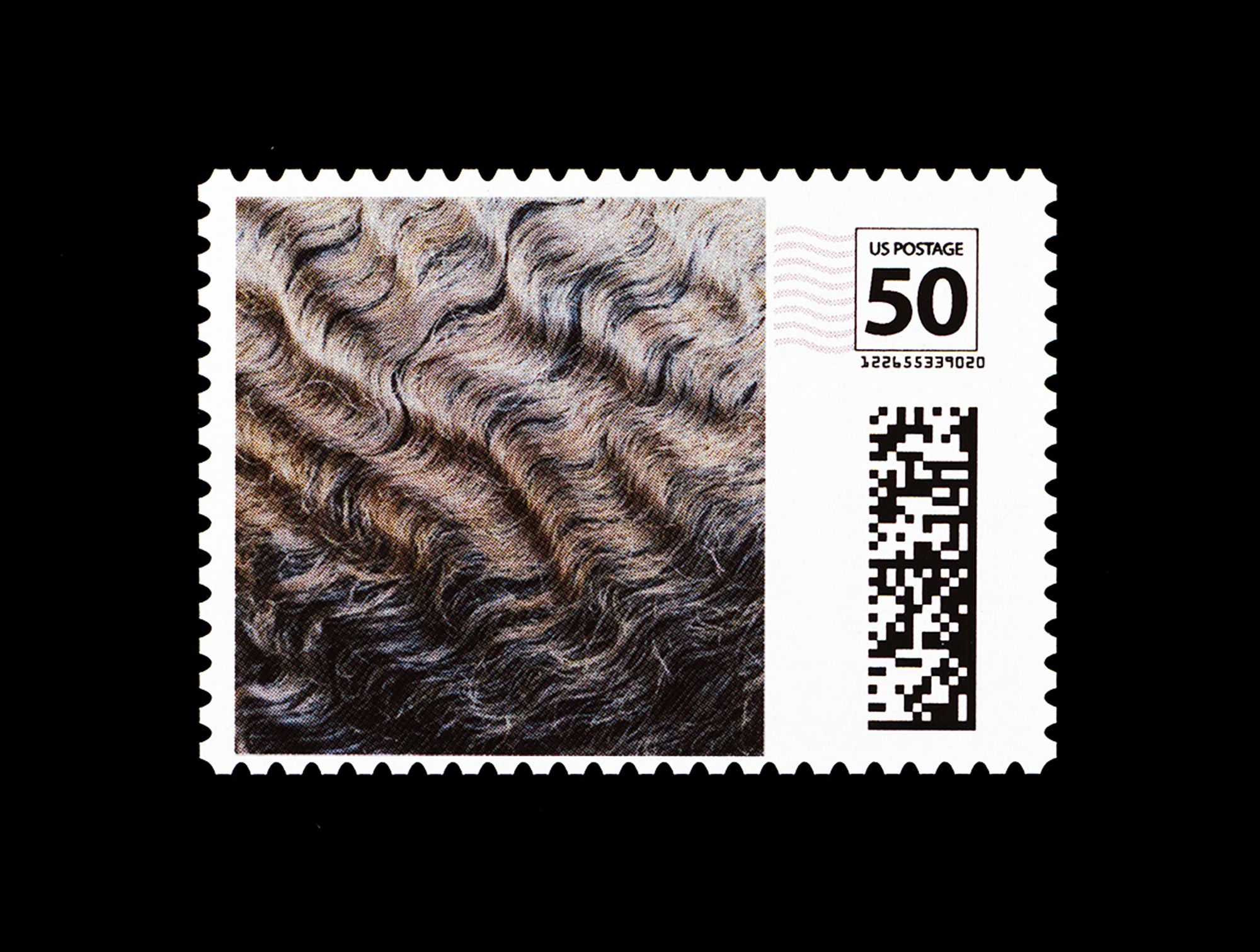
Stamped
John Lucas and Claudia Rankine
Historically, blondness has been a signifier for desirability and beauty. It speaks to “purity” and whiteness—the purity of whiteness—like no other bodily attribute except, perhaps, blue eyes. In the twenty-first century, blondness is the look desired by our American president, pop stars, rappers, television announcers, Hollywood celebrities, the boy next door, and some, though not all, Asian Americans, African Americans, white Americans, Arab Americans, and LatinX Americans. The desirability of blonde hair has no genre boundaries, no pronoun limitation, and no class limit. Whether one is a bottle blonde or regularly goes to the salon, blondness is ubiquitous.
In Stamped, filmmaker and photographer John Lucas and writer Claudia Rankine have collaboratively captured photographs of dyed blonde hair, as seen on the heads of strangers and acquaintances. These images—zoomed in and cropped—are framed as still images and also transposed onto real postage stamps. The stamp, a form of currency with inherent mobility, becomes a metaphor for questioning: What do we attribute to blondness? Where do we think it will take us? These questions are implicated in recorded conversations between Rankine and the individuals that she encounters, which play throughout the gallery space. Meanwhile, a video installation by Lucas depicts cascading strands of hair.
The exhibition engages the quotidian aspirations of Americans who have decided to send themselves into the world of blonde. Their reasons are many; some thoughtful, some ahistorical. Many, however, just want to look good without questioning why blonde is good. Some say the blonde masks their gray and defies aging, others want to be noticed for being different, and still others attach to the age-old equation of blondness as beauty. Few use the word white in their reasoning because they see blondness as a style free from its racial implications. For them it’s not a way of being or a sign of belonging. For each user of blonde dye, the journey is personal. Only the blondes know where blondness sends them. In this way, they are stamped, but it is also their freedom.